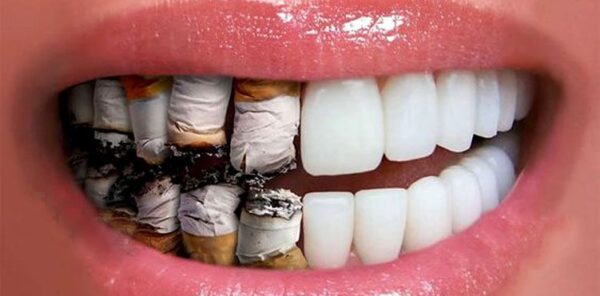Dental implants have revolutionized the field of dentistry, offering a durable and natural-looking solution for individuals with missing teeth. However, for those who smoke, the road to successful dental implantation can be fraught with challenges.
Dental implants are artificial root made of titanium or its alloys or ceramic etc which is installed into the gum-line to keep the structure of the remaining teeth and to keep natural chewing and biting intact. Dental implant treatment helps replace the root area of the missing tooth with metal, screw-like posts in which the artificial tooth can be implemented. The artificial teeth look just like natural teeth, so this type of surgery can be a great alternative to wearing dentures or having ill-fitting bridgework done.
In this article, we will explore the intricate relationship between smoking and dental implants, shedding light on the potential risks and consequences for oral health.
Possible Medical Conditions Where You Should Not Smoke
Smoking is a well-documented risk factor for numerous medical conditions, affecting virtually every organ system in the body. The harmful substances present in tobacco smoke can lead to a wide array of health issues, ranging from cardiovascular diseases to respiratory disorders and beyond.
Smoking is associated with a myriad of detrimental health conditions, affecting nearly every aspect of the body. It significantly elevates the risk of cardiovascular diseases, contributing to atherosclerosis, high blood pressure, and an increased likelihood of heart attacks and strokes. Respiratory disorders, including chronic bronchitis and emphysema, are prevalent among smokers due to the damage inflicted on the lungs. Moreover, smoking is a leading cause of various cancers, impacting not only the lungs but also the mouth, throat, esophagus, and other organs. Reproductive complications, dental and oral health problems, and exacerbated complications in individuals with diabetes are further consequences of tobacco use. Quitting smoking is crucial for mitigating these risks, promoting overall health, and reducing the incidence of life-threatening conditions. Seeking professional support and utilizing smoking cessation resources are essential steps toward breaking the smoking habit and fostering a healthier future.

Smoking and Dental Implant
One of the most common reasons for the lack of success of dental implants attributed to several studies is; SMOKING. Smoking aids in obstructing blood flow to the gum region and decelerates the curing process. According to studies, smokers can have a dental implant failure rate of up to 20%! You may have a far better outcome if you stop smoking one week before an implant and if you don’t smoke for a minimum of two months after implant placement.
At Royal Dental Clinics, We Provide Same Day Dental Treatment With Dental Implants.
All factors are neither on top of things of the dental implantologist nor the patient. Experience shows excellent success even when the above-stated factors aren’t favorable; while in conditions when all the aforesaid factors are favorable still there are failures. Therefore almost every event the success rate of dental implants is very high at over 90% over a 10-year period. But when you smoke after a dental implant; these numbers are no more of any relevance as the success rate dips.
SAPTeeth Dental Crown
Recently researchers have identified the importance of the success of dental implants due to the advent of the revolutionary SAPTEETH (Shock absorbable permanent teeth) technology. The occlusal surfaces like enamel in citizenry have a hardness ranging between 350 to 450 mpa. Hence the load on the dental implants, and bone underneath the teeth crowns thanks to these materials is nearly 24 to 149 times higher in comparison to recently introduced revolutionary materials like hi-impact polymer composites having a hardness of only 120 mpa.
With technological advancements, these polymers have excellent chewing efficiency and have wear-off capabilities to last for 9+ years in normal conditions. SAPTeeth may even do wonders for smokers as the repairs for wear and tear are much simpler.
Factors That Affect the Success of Dental Implants Other Than Smoking!
❌ Poor Oral Hygiene
One of the factors that affect the success rate of implant procedures is the inability to practice good oral hygiene after a dental implant. If you’ve got limitations that affect the motion or interfere with the ability to clean your teeth. With a smoker, this condition can worsen the success rate of a dental implant.
❌ Medical Conditions
Slow healing can arrest osseointegration, where the implant fuses or integrates together with your jaw bone. When can I smoke after a dental implant? Medically; never.
❌ Insufficient Jaw Bone
In the absence of healthy bone, the surgeon cannot surgically place the implant into your jaw. A successful procedure additionally hooked into sufficient bone to support the implant. Bone loss can happen with osteoporosis. This condition develops when bone density decreases. Bones are brittle and there’s an increased risk of fractures. Smoking affects the body’s ability to absorb calcium; leading to lower bone density and weaker bones.
❌ Gum Disease
Gum disease is an infection that damages the gums and jaw bone. An untreated infection could develop around the implant and cause failure. People who smoke are more likely to produce bacteria, which leads to gum diseases. These gums are further affected because smoking causes a lack of oxygen in the bloodstream, so the infected gums don’t heal.

Royal Dental Clinics – Highest Rated Dental Clinic in Mumbai

In order to overcome the factors affecting dental implants, maintaining good oral health is important. Hence you need to require care of your dental implants almost like your natural tooth. Every day brushing and flossing teeth are required twice. Smoking may not be completely stopped as it’s your personal call, but try and limit it.
Introducing “Smoking Cessation Program”
To quit smoking. A smoking cessation program enables one to intake cigarettes thereby lowering the risk of cancer and other serious health problems. Counseling, behavior therapy, medicines, and nicotine-containing products, such as nicotine patches, gum, lozenges, inhalers, and nasal sprays, may be used to aid in quitting smoking. Thus, This program uses the “five A’s” for smoking cessation:
- Ask (Identify patient’s tobacco intake)
- Advice (On association between oral diseases and smoking)
- Assess (Patients interest and readiness to participate in tobacco cessation)
- Assist (Use appropriate techniques to assist the patient in tobacco cessation)
- Arrange (Follow-up with the patient)
© All rights reserved by Royal Dental Implants Pvt Ltd
Issued in public interest





